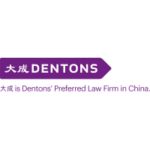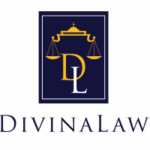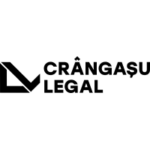-
Overview
Thailand’s merger control regime is governed by the Trade Competition Act B.E. 2560 (2017) (the “Act”), which introduced a framework for merger regulation. The Trade Competition Commission (TCC) is an independent committee appointed under the Act that is responsible for issuing regulations, imposing sanctions, and reviewing and deciding on merger filings and notifications. The Office of the Trade Competition Commission (TCCT) acts as the secretariat to handle administrative functions, monitor compliance, receive complaints, and make recommendations to the TCC.
The Act provides for two types of merger control: (i) transactions which may create a monopoly or dominant position, which require mandatory pre-closing approval and are suspensory (pre–merger filings); and (ii) transactions which may substantially lessen competition, which require post-closing notification within seven calendar days, but are not suspensory (post-merger notification). A transaction will be subject to only one of these, not both.
This regime applies to transactions that have an effect in Thailand, including foreign-to-foreign mergers where the acquirer and the target (including their single economic entity or SEE) have branches or subsidiaries in Thailand.
For pre-merger approvals, the TCC is required to complete its review within 90 calendar days of a complete filing, which may be extended by up to 15 days. Transactions subject to pre-merger approval cannot be consummated until clearance is obtained, and in practice, filings are therefore submitted sufficiently in advance of closing to allow for this review period. For post-merger notifications, parties must file within seven calendar days of closing. There is no prescribed review period, and in practice, formal acknowledgement letters may be issued three to eight months after notification.
The merger control regime applies across all economic sectors, except where mergers are regulated under sector-specific legislation. At present, the TCCT considers the telecommunications and energy sectors to have their own regimes, supervised respectively by the National Broadcasting and Telecommunications Commission and the Energy Regulatory Commission.
Separately, Thailand maintains a foreign direct investment screening regime under the Foreign Business Act B.E. 2542 (1999), which requires foreign businesses to obtain a licence before engaging in restricted activities. The FBA regime operates independently of merger control and is not covered in this guide.
-
Is notification compulsory or voluntary?
Pre-merger approval and post-merger notification in Thailand are compulsory when the relevant thresholds under the Trade Competition Act are met.
-
Is there a prohibition on completion or closing prior to clearance by the relevant authority? Are there possibilities for derogation or carve out?
Transactions that require pre-merger approval are prohibited from completion or closing until clearance is obtained from the TCC. The parties are prohibited from transferring shares or assets before approval is granted.
Preparatory steps prior to closing may be undertaken, provided they do not constitute the acquisition itself.
Post-merger notifications contain no prohibitions on closing, as the filing is made after completion.
-
What types of transaction are notifiable or reviewable and what is the test for control?
Transactions subject to filing obligations include:
- Amalgamation – where businesses merge into a new entity or one surviving entity
- Acquisition of shares – where an acquirer acquires shares, warrants or other convertibles of 25% or more of the total voting rights of a public company listed on the Stock Exchange of Thailand at the end of any day, or acquires more than 50% of the total voting rights of a private company, an unlisted public company or a public company listed on a stock exchange other than the Stock Exchange of Thailand at the end of any day. It is noted that:
- shares acquired by the spouse of a natural person are included in the number of shares being acquired; and
- shares acquired by a natural or juristic person that holds more than 30% of the voting rights of a juristic person and by a business operator belonging to the SEE, i.e. between entities under common control or directive power, are included in the number of shares being acquired; and
- Acquisition of assets – where an acquirer acquires more than 50% of the total value of tangible or intangible assets (for example, leasehold rights or intellectual property rights) of another business operator relating or connected to the ordinary business operations of that other business operator in the preceding financial year
Acquisitions below these thresholds are not notifiable and are not regulated by the Act, even if they involve veto rights, governance influence, or potential de facto control. Thailand does not apply the “decisive influence” test used in the EU, but instead relies on quantitative thresholds.
Mergers within a Single Economic Entity (SEE) are exempted from both pre-merger filing and post-merger notification.
An SEE refers to business operators under a policy relationship or directive power. Directive power applies where a business operator: (i) holds shares with more than 50% of total voting rights in the business operator; (ii) has the power to control the majority of shareholders at shareholder meetings; (iii) has the power to control the appointment or removal of at least half of the directors; or (iv) has the power in (i) or (ii) at every hierarchical level up to the ultimate level of command.
-
In which circumstances is an acquisition of a minority interest notifiable or reviewable?
Under the Act, acquisitions of minority interests are notifiable only where the acquirer obtains 25% or more of the voting rights in a company listed on the Stock Exchange of Thailand.
-
What are the jurisdictional thresholds (turnover, assets, market share and/or local presence)? Are there different thresholds that apply to particular sectors?
The Thai merger control regime applies to the following types of transactions:
- Amalgamation – where businesses merge into a new entity or one surviving entity
- Acquisition of shares – where an acquirer acquires shares, warrants or other convertibles of 25% or more of the total voting rights of a public company listed on the Stock Exchange of Thailand at the end of any day, or acquires more than 50% of the total voting rights of a private company, an unlisted public company or a public company listed on a stock exchange other than the Stock Exchange of Thailand at the end of any day. It is noted that:
- shares acquired by the spouse of a natural person are included in the number of shares being acquired; and
- shares acquired by a natural or juristic person that holds more than 30% of the voting rights of a juristic person and by a business operator belonging to the an SEE, i.e. between entities under common control or directive power, are included in the number of shares being acquired; and
- Acquisition of assets – where an acquirer acquires more than 50% of the total value of tangible or intangible assets (for example, leasehold rights or intellectual property rights) of another business operator relating or connected to the ordinary business operations of that other business operator in the preceding financial year
Acquisitions below these thresholds are not notifiable and are not regulated by the Act, even if they involve veto rights, governance influence, or potential de facto control. Thailand does not apply the “decisive influence” test used in the EU but instead relies on quantitative thresholds.
Domestic presence test. Both the acquirer and target must qualify as “business operators” in Thailand, meaning both the acquirer and target must have a presence in Thailand through a branch, or office, or a subsidiary in its SEE.
Thresholds. Once a transaction meets the definition of both a merger and the domestic presence test, it must then be assessed against the following thresholds:
- Pre-merger approval: required where the transaction results in dominance, defined as (i) a single operator with ≥50% market share and revenue of at least THB 1 billion (approx. USD 27 million) in a particular market in the previous year; or (ii) any top three operators together holding ≥75% market share in the previous year and the revenue of each of at least THB 1 billion (approx. USD 27 million), excluding operators with <10% market share in the previous year.
- Post-merger notification: required for any merger in which the revenue of any one business operator, or the aggregate revenue of all business operators conducting the merger, amounts to THB 1 billion (approx. USD 27 million) in a particular market, and that does not cause a monopoly or result in a business operator having dominant market power.
In calculating turnover, the turnover in any particular market of a party must also include the sales turnover of all entities that are part of the same SEE. The thresholds are national in scope, meaning in calculating sales turnover, only the revenue generated from the sale of products or provision of services to customers in Thailand is counted, regardless of whether the sales are made from within or outside Thailand.
These thresholds are set out in sub-regulations, which can be updated more readily than the Act itself.
The telecommunications and energy sectors are subject to their own regimes, with different thresholds.
-
How are turnover, assets and/or market shares valued or determined for the purposes of jurisdictional thresholds?
Turnover: Turnover is assessed on a market basis, not on total revenue. This means revenue is calculated separately for each relevant market. For example, if the target generates revenue in Market A and Market B, the revenues are assessed individually rather than aggregated across all markets. Where the acquirer and target overlap in the same market, their revenues are combined. Turnover is measured for the previous financial year, generally based on audited financial statements, and is national in scope, covering sales into Thailand regardless of whether the sales originate inside or outside the country.
Assets: Tangible or intangible assets (for example, leasehold rights or intellectual property rights) related to the ordinary business operations in the preceding financial year are included. While the Act does not expressly limit this to assets in Thailand, in practice, only assets connected to Thai operations are relevant.
Market shares: Currently, there are no formal regulations on the how to calculate market share for a particular market, but in practice, the TCC places greater emphasis on markets where there is a horizontal overlap or a vertical link. However, in some cases, the TCC has deemed all active markets of both the acquirer and target (including where there has been no overlap) as relevant markets. Market share is usually assessed on a national basis, but narrower geographic definitions may apply in localised industries (e.g. airports or real estate). The TCC also considers market definitions and foreign precedents, including market shares proposed by the parties, and may also refer to its own comparable cases when assessing merger filings.
Other points:
- Thresholds are not tied to external reference factors (e.g. minimum wage).
- Revenue and market share are calculated on a SEE basis.
-
Is there a particular exchange rate required to be used for to convert turnover thresholds and asset values?
No mandated source of exchange rates is defined under the Act, and the TCCT has not issued guidance on this point. In practice, parties typically use the Bank of Thailand’s published average daily selling rates for the period corresponding to the financial year of the undertaking when converting turnover or asset values. The basis applied should be explained in the filing.
-
In which circumstances are joint ventures notifiable or reviewable (both new joint ventures and acquisitions of joint control over an existing business)?
Joint ventures are notifiable in Thailand only if they qualify as “mergers” under the Act, namely, amalgamations, acquisitions of shares, or acquisitions of assets. There are no separate thresholds for JVs. This means: (i) a new “greenfield” JV with no pre-existing business is not notifiable, but (ii) if the JV is formed through the amalgamation with, or acquisition of shares or assets from an existing business operator, the transaction is notifiable under the Act.
For acquisitions of joint control over an existing business, filing obligations arise when the acquiring parties cross the thresholds (25% or more of voting rights for listed companies or more than 50% of voting rights/assets for others). Transactions within a SEE are exempt.
The merger control regime does not distinguish between “full-function” JVs and other types of JVs.
Jurisdiction is based on the TCC’s “domestic presence test,” which requires both the acquirer and the target (including their respective SEEs) to have a presence in Thailand through a subsidiary or branch. Without such presence, foreign entities are not considered “business operators” under the Act, and there is no filing obligation.
Separately, contractual cooperation arrangements that do not involve a merger are not caught by merger control but may fall under the Act’s prohibitions on anticompetitive agreements (e.g. price-fixing, output restrictions, or market/customer allocation).
-
Are there any circumstances in which different stages of the same, overall transaction are separately notifiable or reviewable?
The TCC has not issued clear guidance on whether different stages of a transaction are assessed separately or as a single overall transaction. In practice, if a transaction involves multiple steps that are interdependent and form part of a single overall concentration, the TCC generally accepts one filing. Where linked transactions are independent of each other (i.e., not conditional upon one another), separate filings may be required.
The filing fee of THB 250,000 (approx. USD 6,800) per submission.
Post-merger notifications do not carry a filing fee.
-
How do the thresholds apply to “foreign-to-foreign” mergers and transactions involving a target / joint venture with no nexus to the jurisdiction?
The Thai merger control regime applies equally to domestic and foreign-to-foreign transactions, and there are no separate thresholds. However, through its decisional practice, the TCC applies a “domestic presence test.” This requires both the acquirer and the target (including their respective single economic entities) to have a presence in Thailand through a subsidiary or branch. Without such presence, foreign entities are not considered “business operators” under the Act, and thus, there is no filing obligation.
Accordingly, purely foreign-to-foreign mergers with no presence in Thailand are not notifiable and carry no enforcement risk. Foreign-to-foreign mergers must beUnder the Act, the TCC assesses whether a merger creates a monopoly, a dominant position, or substantially lessens competition. In making this assessment, it may consider competitive effects. Efficiencies and consumer benefits may also be considered, although there is no clear guidance on how these are weighed.
The TCC may approve a merger without conditions, approve it subject to conditions, or prohibit it entirely. It has the statutory power to impose conditions and specify compliance periods, including divestment or behavioural remedies.
Little precedent and no clear lines exist as to when conditions might be imposed. To date, no pre-merger filing has been blocked, and all approvals have either been unconditional or subject to minimal conditions.
The Act contains no sector-specific substantive tests. Certain sectors, such as telecommunications and energy sectors, are subject to separate sectoral regimes with their own approval processes, but these are distinct from merger control under the Act. notified only where both parties satisfy the domestic presence test and relevant thresholds. Although sanctions apply in principle to foreign-to-foreign mergers that fall within the scope of the Act, there have been no precedents for fines or remedies being imposed. The TCCT does, however, monitor such transactions.
Where pre-merger approval is required, the TCCT has not provided an official statement in support of acceptable solutions that would permit closing before clearance in foreign-to-foreign mergers. Practically, implementing hold-separate and/ or ring-fencing arrangements to allow the merging parties to close a transaction outside of Thailand may be possible, but such measures should first be discussed with the TCCT.
-
For voluntary filing regimes (only), are there any factors not related to competition that might influence the decision as to whether or not notify?
Not applicable
-
What is the substantive test applied by the relevant authority to assess whether or not to clear the merger, or to clear it subject to remedies?
Under the Act, the TCC assesses whether a merger creates a monopoly, a dominant position, or substantially lessens competition. In making this assessment, it may consider competitive effects. Efficiencies and consumer benefits may also be considered, although there is no clear guidance on how these are weighed.
The TCC may approve a merger without conditions, approve it subject to conditions, or prohibit it entirely. It has the statutory power to impose conditions and specify compliance periods, including divestment or behavioural remedies.
Little precedent and no clear lines exist as to when conditions might be imposed. To date, no pre-merger filing has been blocked, and all approvals have either been unconditional or subject to minimal conditions.
The Act contains no sector-specific substantive tests. Certain sectors, such as telecommunications and energy sectors, are subject to separate sectoral regimes with their own approval processes, but these are distinct from merger control under the Act.
-
Are factors unrelated to competition relevant?
No. The authority does not take into account factors unrelated to competition in its merger control assessment.
-
Are ancillary restraints covered by the authority’s clearance decision?
The TCC has not issued detailed guidance on ancillary restraints in the merger control context. In practice, the TCC’s merger review (whether pre-merger approval or post-merger notification) focuses on whether the merger itself has an effect of substantially lessening competition. Ancillary restraints (such as non-compete covenants imposed on the seller) are not expressly reviewed or cleared by the authority as part of the merger decision.
-
For mandatory filing regimes, is there a statutory deadline for notification of the transaction?
For post-merger notifications, there is a statutory deadline of seven calendar days from closing. The deadline runs from the date the transaction is completed (i.e. when the amalgamation, acquisition of assets, or acquisition of shares takes effect). A complete post-merger notification, together with supporting documents, must be submitted; a simple letter to the TCCT is not sufficient.
For pre-merger approvals, the law does not prescribe a statutory deadline for the parties to submit filing. However, the transaction cannot be closed until approval is obtained, so in practice, the filing must be made sufficiently in advance of closing to allow for the TCC’s review period, which is 90 days and extendable by 15 days. Similarly, the complete pre-merger form and supporting documents must be submitted; a simple letter is not sufficient.
-
What is the earliest time or stage in the transaction at which a notification can be made?
No timeline is prescribed for the earliest stage at which a pre-merger can be made. In practice, filings for pre-merger approval are generally submitted once the parties have entered into a definitive agreement and a resolution exists to proceed with the transaction, although it is possible to submit the filing earlier.
Post-merger notification can be submitted only after the transaction is closed.
-
Is it usual practice to engage in pre-notification discussions with the authority? If so, how long do these typically take?
In practice, parties to any transaction—whether straightforward or complex—are encouraged to hold informal consultations with the TCCT to confirm the completeness of filings and supporting documents before submission. These consultations are not mandatory, and therefore no prescribed timeline applies. Nevertheless, it is recommended to engage with the TCCT approximately one month in advance for pre-merger approval filings, and about two weeks in advance for post-merger notifications.
-
What is the basic timetable for the authority’s review?
For pre-merger approvals, once the TCCT receives a complete pre-merger filing, the secretary-general of the TCCT proposes approval of the merger to the TCC Chairman within seven calendar days from the date the completed pre-merger application was received. During the review, the TCC may request additional information from the parties or invite relevant business operators and third parties to offer opinions and information in support of the consideration. A decision must be issued within 90 calendar days of receipt of the filing by the TCCT, which is extendable once by up to 15 days.
For post-merger notifications, there is no prescribed review period. In practice, the TCC issues a formal acknowledgement letter, based on experience, the acknowledgment process can take anywhere between 3 to 8 months after the notification is submitted.
-
Under what circumstances may the basic timetable be extended, reset or frozen?
For pre-merger approvals, the TCC must complete its review within 90 days of receiving a complete filing, which may be extended once by up to 15 days. The law does not provide for the timetable to be reset or frozen in other circumstances.
Requests for further information, incomplete responses, or submissions of remedies do not suspend or restart the statutory review period. Instead, the review clock only starts once the TCCT deems the filing complete. If a notification or response is considered incomplete or misleading, the TCCT may require corrections, and the timetable will run only from the date the submission is complete.
No mechanism is present under Thai law for third-party interventions to extend or freeze the timetable.
-
Are there any circumstances in which the review timetable can be shortened?
No, the Act contains no provisions that allow the pre-merger approval process to be expedited. In practice, the TCC generally takes a significant portion of the 90-day review period and tends to issue decisions relatively close to the end of this statutory timeframe.
-
Which party is responsible for submitting the filing?
The party responsible for filing a merger notification is the acquirer. Although this is not expressly stated in the Act, it is specified in the filing form and is consistent with the precedents.
For acquisitions of joint control, the filing obligations generally rests with the party acquiring control (or additional control) over the target.
For new JVs, the mere formation of a JV without acquiring an existing business does not trigger merger filing requirements in Thailand. A filing obligation arises only if the JV is created through an amalgamation with, or an acquisition of shares or assets from, an existing business operator. In such cases, the entity acquiring the shares or assets is responsible for the filing.
-
What information is required in the filing form?
For pre-merger approvals, the filing form requires:
- the merger plan and implementation timeline;
- details of the merging parties and target company, including shareholding structures, voting rights, sales turnover, and market shares; and
- studies and analyses of the merger transaction covering market definition, market structure and scope, sales turnover and market shares before and after the transaction, as well as the competitive effect of the merger (including concentration, entry and expansion, and non-coordinated and coordinated effects), effects on the economy, and consumer impact.
For post-merger notifications, the form requires:
- information on the merger transaction (amalgamation, share or asset acquisition);
- market definition analyses, market share figures of the transaction parties (and their competitors in the relevant market), detailed revenue breakdowns of provided goods and services; and
- details of entities within the same economic entity.
All filings must be in hard copy form and in the Thai language (or translated into Thai). No “short form” filing procedure exists. The TCCT may request additional information where the initial submission is considered insufficient for its merger assessment. Providing false or misleading information can result in criminal liability and revocation of approval.
-
Which supporting documents, if any, must be filed with the authority?
Supporting documents vary depending on the type of filing, but typically include:
- Corporate documents: (certificate of incorporation, articles of association, shareholder lists) from each merging party;
- Transaction documents: (definitive agreements, share purchase agreementappraisal reports, and minutes or resolutions approving the merger from each merging party);
- Financial information: (annual reports and audited financial statements for the previous three years) from each party;
- Market information: Market reports and economic studies prepared in connection with the merger for pre-merger filings only; and
- Power of attorney: (if counsel submits the filing).
All documents must be submitted in Thai or be accompanied by a translation into Thai. Notarisation or apostilles are not required. Corporate documents should be current as of the date of filing. The filing form itself must be signed by the authorised representative of the acquirer or by a representative authorised by a power of attorney.
-
Is there a filing fee?
Yes. A filing fee of THB 250,000 (approx. USD 6,800) for pre-merger approval applications is required. No filing fee exists for post-merger notifications.
-
Is there a public announcement that a notification has been filed?
After a merger filing is submitted, the TCCT issues an acknowledgement of receipt to the notifying party once the submission is complete, but this is not published or otherwise made public. The TCC’s final decision is later published on the TCCT website, but the full names of the parties are not disclosed.
-
Does the authority seek or invite the views of third parties?
The TCC has the power and discretion to invite external individuals to provide opinions or information to support its assessment. However, it is not common practice for the TCC to conduct public hearings or to seek views from third parties.
-
What information may be published by the authority or made available to third parties?
Final decisions on mergers by the TCC are published on the TCCT’s website (in Thai only), usually several months after the TCC has ordered a decision to approve or acknowledge a transaction. The names of the parties and sensitive commercial information are redacted, but the summaries typically include abbreviated party names, corporate information, revenue, shareholding structure, relevant products and geographic markets, market shares, and the TCC’s decision. Business descriptions may still make it possible to identify the parties.
Notifications, supporting documents, and responses to questionnaires are not published, and there is no formal process for the parties to review the published version before disclosure.
-
Does the authority cooperate with antitrust authorities in other jurisdictions?
The TCCT cooperates with other overseas authorities and institutions, such as the International Trade Centre, particularly in the area of capacity building. TCCT has also signed economic partnership agreements with Japan, New Zealand, and Australia, and such agreements establish collaboration on antitrust issues.
Thailand is also a member of the International Competition Network (ICN) for mergers and other competition issues. However, the ICN does not facilitate cooperation in terms of enforcement, only in establishing best practices for the enforcement of competition rules.
There are no specific provisions imposing legal consequences on a party that refuses to grant a waiver for its confidential information to be shared with another authority (e.g., a foreign competition authority). In general, the TCCT is prohibited from disclosing confidential business information except where disclosure is required for investigations, inquiries, case proceedings, or its own operations. It remains untested, however, whether this provision would allow the TCCT to disclose information to a foreign antitrust authority in order to assist with its investigations.
-
What kind of remedies are acceptable to the authority?
The TCC has the legal authority to impose conditions when approving a transaction that may create a monopoly or dominant position. These conditions theoretically include structural or behavioural remedies.
To date, no divestiture orders have been issued, and there have been no instances of structural remedies such as up-front buyer requirements or purchaser approvals. Conditions to date have been limited behavioural measures, typically requiring a specific party to maintain existing terms with distributors or suppliers for a certain period, or to provide periodic business performance reports.
-
What procedure applies in the event that remedies are required in order to secure clearance?
There are no specific provisions in the Act prescribing procedures in the event that remedies are required. In practice, parties typically propose remedies (if necessary) in the filing form and then discuss them with TCCT officers.
-
What are the penalties for failure to notify, late notification and breaches of a prohibition on closing?
While not expressly provided in the law, the acquirer’s responsibility to file is implied in the filing form and is consistent with the TCC’s decisions, under which the acquirer is responsible for filing and subject to penalties in the event of a failure to file.
Failure to obtain pre-merger approval when required may result in an administrative fine of not more than 0.5% of the total merger transaction value. In addition, civil damages may be claimed by any person suffering loss or injury. The TCC also has the power to order a business operator to suspend, cease, or modify the merger if there is sufficient evidence of a violation of the pre-merger filing requirements. While these sanctions are available to the TCC, there have been no cases to date where fines have been imposed for failure to seek pre-merger approval.
Failure to make a post-merger notification when required will incur an administrative fine of not more than THB 200,000 (approx. USD 5,500), plus a daily fine of not more than THB 10,000 (approx. USD 275) throughout the violation period. These penalties apply both to complete failures to notify and late notifications. The TCC has fined companies for late post-merger filings, often detected through disclosures by companies listed on the Stock Exchange of Thailand. In addition, the responsible business operator is also subject to civil damages from any persons suffering damage therefrom.
Where a company fails to comply with pre- or post-merger filing obligations, its directors, managers, or other responsible persons may also be personally liable for the same administrative fines if they had a duty to ensure compliance but failed to do so.
While there are no criminal penalties for failure to notify, late notification, or breaches of the prohibition on closing, providing false or misleading information to the authority could give rise to criminal liability under the Criminal Code.
Reputational harm is possible, as the TCCT publishes decisions in which the industry is identified, making the parties traceable. Potential business disruption may occur if interim measures are imposed, and non-compliance may also trigger closer scrutiny by the TCC of future deals.
-
What are the penalties for incomplete or misleading information in the notification or in response to the authority’s questions?
Business operators that intentionally provide false or misleading information to the TCCT may be subject to criminal penalties under the Criminal Code for the submission of false information to government officials.
In addition, pre-merger approval can be revoked by the TCC if it becomes aware of such false or misleading information.
-
Can the authority’s decision be appealed to a court?
Yes. Decisions or orders of the TCC to suspend, cease, rectify, or modify a merger that has not obtained approval, as well as orders to grant approval with conditions or to deny approval, are subject to judicial review.
A business operator may file an appeal with the Administrative Court, and further appeals lie with the Supreme Administrative Court, whose judgment is final. The courts may overturn a decision by the TCC only on limited grounds, namely illegality, undue process, or abuse of discretion.
The right to appeal rests with business operators against whom the TCC’s orders take effect. Third parties who are not directly subject to the order have no right to appeal.
An appeal must be lodged within 60 days of receipt of the TCC’s decision. The courts are under no prescribed statutory timeframe to complete their review, and in practice, proceedings may take years before a final judgment is issued.
-
What are the recent trends in the approach of the relevant authority to enforcement, procedure and substantive assessment?
The TCC and TCCT have become more active in merger control enforcement. To date, the TCC has imposed fines in eight cases for late post-merger notifications. In contrast, no published cases of fines for failing to obtain pre-merger approval are known. The TCCT has also started to publish more summaries of merger control decisions, which increases transparency but also raises reputational risk for companies.
Procedurally, the TCCT has adopted a stricter approach to checking the completeness of filings and frequently issues follow-up information requests.
In its substantive assessment, the TCC has shown greater attention to mergers in industries such as automotive parts, beer, electric vehicles, petrochemicals and chemicals, and transportation and logistics.
-
Are there any future developments or planned reforms of the merger control regime in your jurisdiction?
At present, there are four draft amendments to the Trade Competition Act proposed by political parties that have already received approval in principle from the House of Representatives. These drafts are now pending further parliamentary consideration. In parallel, the TCC has prepared its own draft amendment, which is currently undergoing a public hearing process. Once finalised, this draft will also be submitted to the House of Representatives.
Ultimately, the political party drafts and the TCC’s draft are expected to be considered together in Parliament, paving the way for potential reforms to the merger control regime. If the amendments to the Act move forward, drastic changes could be expected—for example, a shift to require pre-merger approval for all transactions and the abolition of the post-merger notification regime.
That said, given the current political situation in Thailand, the legislative process is expected to take some time. In the meantime, it is possible that the TCC may revise or issue new notifications updating detailed rules on merger control.
Thailand: Merger Control
This country-specific Q&A provides an overview of Merger Control laws and regulations applicable in Thailand.
-
Overview
-
Is notification compulsory or voluntary?
-
Is there a prohibition on completion or closing prior to clearance by the relevant authority? Are there possibilities for derogation or carve out?
-
What types of transaction are notifiable or reviewable and what is the test for control?
-
In which circumstances is an acquisition of a minority interest notifiable or reviewable?
-
What are the jurisdictional thresholds (turnover, assets, market share and/or local presence)? Are there different thresholds that apply to particular sectors?
-
How are turnover, assets and/or market shares valued or determined for the purposes of jurisdictional thresholds?
-
Is there a particular exchange rate required to be used for to convert turnover thresholds and asset values?
-
In which circumstances are joint ventures notifiable or reviewable (both new joint ventures and acquisitions of joint control over an existing business)?
-
Are there any circumstances in which different stages of the same, overall transaction are separately notifiable or reviewable?
-
How do the thresholds apply to “foreign-to-foreign” mergers and transactions involving a target / joint venture with no nexus to the jurisdiction?
-
For voluntary filing regimes (only), are there any factors not related to competition that might influence the decision as to whether or not notify?
-
What is the substantive test applied by the relevant authority to assess whether or not to clear the merger, or to clear it subject to remedies?
-
Are factors unrelated to competition relevant?
-
Are ancillary restraints covered by the authority’s clearance decision?
-
For mandatory filing regimes, is there a statutory deadline for notification of the transaction?
-
What is the earliest time or stage in the transaction at which a notification can be made?
-
Is it usual practice to engage in pre-notification discussions with the authority? If so, how long do these typically take?
-
What is the basic timetable for the authority’s review?
-
Under what circumstances may the basic timetable be extended, reset or frozen?
-
Are there any circumstances in which the review timetable can be shortened?
-
Which party is responsible for submitting the filing?
-
What information is required in the filing form?
-
Which supporting documents, if any, must be filed with the authority?
-
Is there a filing fee?
-
Is there a public announcement that a notification has been filed?
-
Does the authority seek or invite the views of third parties?
-
What information may be published by the authority or made available to third parties?
-
Does the authority cooperate with antitrust authorities in other jurisdictions?
-
What kind of remedies are acceptable to the authority?
-
What procedure applies in the event that remedies are required in order to secure clearance?
-
What are the penalties for failure to notify, late notification and breaches of a prohibition on closing?
-
What are the penalties for incomplete or misleading information in the notification or in response to the authority’s questions?
-
Can the authority’s decision be appealed to a court?
-
What are the recent trends in the approach of the relevant authority to enforcement, procedure and substantive assessment?
-
Are there any future developments or planned reforms of the merger control regime in your jurisdiction?





















